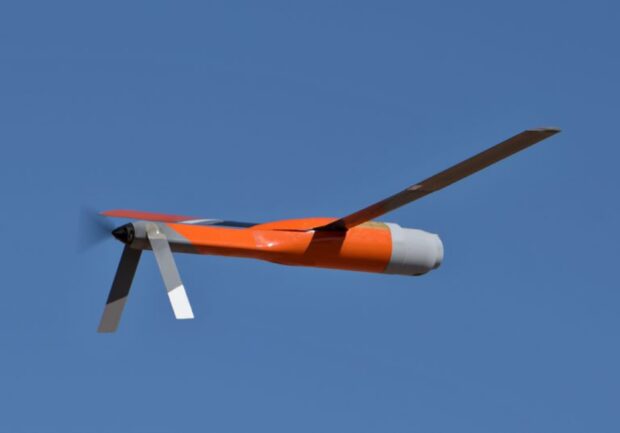Weaponised autonomous drones made by the US parent company of defence contractor Anduril Australia are providing an important new capability in Ukraine’s struggle against Russian forces, according to the US company’s founder Palmer Luckey.
Luckey, in Australia to participate in ASPI’s Sydney dialogue on emerging technologies and to meet with senior Defence officials, said the Pentagon had disclosed the inclusion of Anduril Industries’ latest Altius 600M drones in the US$2 billion aid package for Ukraine announced in late February.
The Altius 600M is a 12kg tube-launch propellor-driven drone that can be launched from the ground, from vehicles, from watercraft, from aircraft, and from larger drones. It can remain airborne for around four hours and has a maximum range of 400 km – thought to be significantly greater than other current market offerings.
The drone has already been extensively tested for the US Army’s “air-launched effects” concept – launching a scouting drone from a moving helicopter.
The 600M’s modular nosecone can carry a variety of payloads including ISR and signals intelligence sensors, radio frequency decoys, communication relays and electronic warfare assets, and now can also be configured as a kamikaze loitering munition to attack high-value targets with a 3 kg warhead.
“Now they have warheads and they’ve been equipped with autonomy – previously a guy would steer it around using a remote control and a screen but we’ve made it where one person can manage one or two dozen of the drones on his own,” Luckey explained.
“Some might be doing targeting, some might be strike, and one person, usually a helicopter pilot and maybe nine miles back, is telling them what to look for – perhaps surface-to-air missile launcher positions. If something of interest is located he’ll get an alert and, if necessary, he can order the drone to orbit the potential target. If required he can push a button and order that – or an accompanying drone – to take out the launch position.
“The drone will do it, but the helicopter pilot doesn’t have to sit there and remote-control it.”
Despite Russian countermeasures, other undisclosed Anduril drones have been able to operate in the Ukraine where others have not, since fighting began in February 2022, Luckey disclosed.
“The Russians always use EW to jam communications and navigation so autonomous systems are not able to operate close to their important assets. But there are techniques you can use with autonomy to make that possible even inside the bubbles of EW systems.
“We’ve been doing that since the beginning, we’ve been very fast about updating our systems to match the latest thing we’re seeing.
“As the Russians change their tactics and their systems, we’re able to push software changes to our platforms that change their capabilities and change the way they communicate, so they continue operating.
“Some of the things the US is providing to the Ukraine work for maybe a couple of days then the Russians change their tactics and because the software has been baked into the systems years ago it can’t be changed, and there’s nothing that can be done to make it relevant once again.”
Luckey, who has personally headed on-the-ground product training in Ukraine, described the company’s relationship with Ukrainian armed forces personnel as “a very collaborative thing”.
“They text back back and forth, ‘this is what the Russians are doing, how can we defeat it?’,” he said. “We’ve been learning a lot about how systems perform in combat environments, and they’re more than happy to tell you when your stuff isn’t working.”
Source: Australian Defence Magazine

